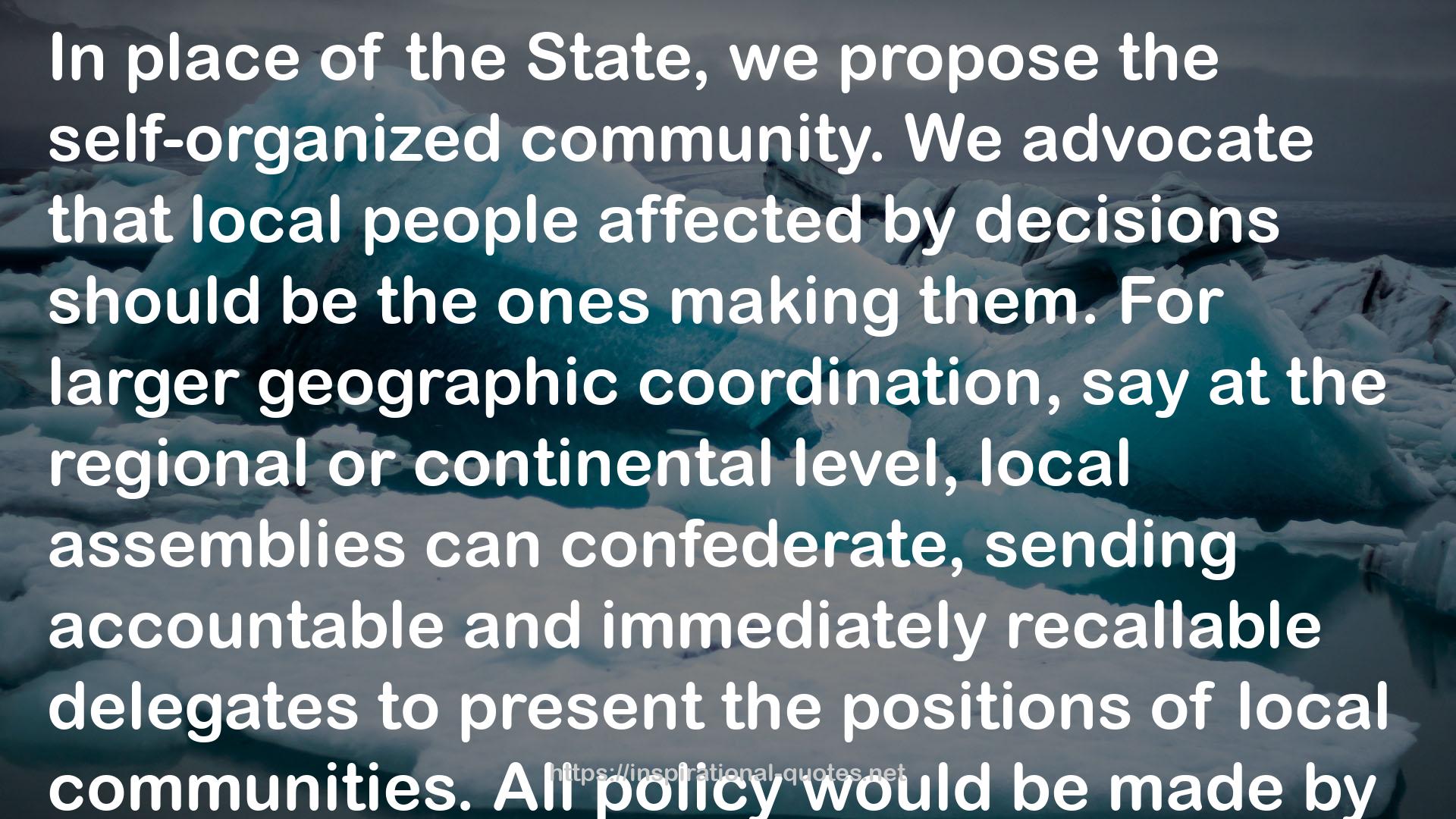" In place of the State, we propose the self-organized community. We advocate that local people affected by decisions should be the ones making them. For larger geographic coordination, say at the regional or continental level, local assemblies can confederate, sending accountable and immediately recallable delegates to present the positions of local communities. All policy would be made by the people in a directly democratic fashion, with the administration of that policy carried out by accountable and recallable bodies to serve various functions. Various experts, those who know how to build bridges, for example, or design alternative energy technologies, would inform the decisions of the assemblies. But ultimately it is the people who decide, not the experts. This way of organizing society would be one part of an overall redistribution of wealth and power, which would fundamentally change our relations to each other. Of course this direct, democratic form of self-governance runs the risk of evolving into a new State, alienated from and above the majority of people; thus constant vigilance and flexibility will be required to prevent the emergence of new elites and an alienated administrative apparatus. "
― , A New World In Our Hearts: 8 Years of Writings from the Love and Rage Revolutionary Anarchist Federation
